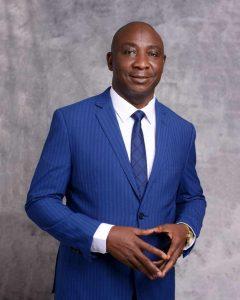When it comes to strategy execution, leaders make one of two mistakes. They are either too high level or stuck in the weeds. But the result is the same: a failure to provide the necessary leadership to the teams and individuals who are responsible for implementation.
Depending on which studies you look at, somewhere between 67 and 90 percent of strategies fail to deliver due to execution. While strategy and execution are inextricably linked, they are fundamentally different in how they show up in organizations. It’s easy to fall into the trap of believing that as long as the strategy is clear, people will know what to do so that the execution follows.
If leaders are going to successfully drive the execution of their company strategy, they need to strike the right balance between defining the work to be done and providing the boundaries for how it will be done. Done well, this allows leaders to remain involved strategically and establish clear performance expectations without micromanaging or getting lost in the details. In The Growth Leader, Wall Street Journal bestselling author Scott K. Edinger shares a few key elements to lead your team to execute strategy the right way.
1. Don’t get caught up in perfection
When working to improve performance or build capabilities, iteration is the name of the game. Low standards notwithstanding, leaders can’t get caught up in perfection–or, more likely, allow it to happen on their teams.
So many projects are delayed or, more likely, never completed because of the pursuit of perfection. Take a page from the software development playbook and remember that there’s always a chance for the next version. Determining the acceptable level of improvement allows leaders to push forward with completing important projects. Then, they can consider what’s next and what resources are needed instead of getting caught in a cycle of projects that never cross the finish line.
2. Don’t let operational issues take up all your time
It can be exhausting dealing with the day-to-day tasks that come with running a business. For some leaders, it becomes so overwhelming that they find it difficult to improve and acquire what they need to achieve growth.
There is a sense that the decks need to be cleared before they can take on these more strategic efforts. But the opposite is true: Those strategic efforts are what’s needed to keep the ship afloat. Clean decks on a sinking ship do no one any good.
Edinger has some advice for leaders being consumed by operational minutia. For starters, carve out time each day, even if it’s a 60-90 minute chunk, to work on strategy execution issues. That may include clarifying the objectives of a project or establishing a shared definition of success. Or it may involve working through timeframes for progress measures, resource allocation, or other strategic topics. But they won’t likely get these things done in between emails and meetings. And just as important, make sure to allow time for a brain break before shifting gears. “It’s hard to be innovative when your mind is still centered on the practical,” says Edinger.

3. Trust your team to do the work you hired them to do
According to Edinger, the essence of micromanagement is thinking you are the only person who can perform a task. More often, this attitude is a matter of leaders being unwilling to give up their involvement in something important to them or unwilling to give up the reward or recognition they receive for that involvement.
Leaders will never get their team to level up if they are doing the work for them. It’s important for leaders to shift their mindset from managing tasks to leading for results. It frees them up to spend more time on the strategic work only they can do and shows they trust in their team. That trust breeds confidence, which leads to more productive action.
“In addition, make sure to recruit the kind of talent that’s advantageous to the team and don’t be afraid to move personnel around to roles they end up being a better fit for,” according to Edinger.
Despite the strong urge to do so, leaders can’t be everywhere and usually don’t even have the skills to do everything–so it’s crucial to hire the people who do and position them for maximum impact.
There is rarely one culprit when it comes to the hindrances leaders face in the execution of strategy. More often, several of these factors collude to thwart or at least slow your efforts. You may have experienced others not indexed here as well. But this list is instructive in creating an approach to focusing and driving your strategy execution efforts.
incafrica.com


















